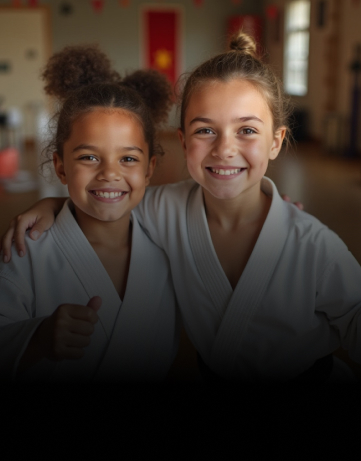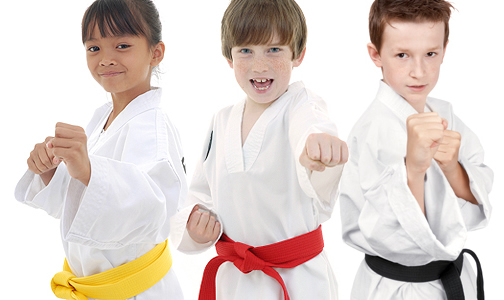Martial Arts Salisbury MD – Skilled Instructors Leading Real Skills for Kids
Martial Arts Salisbury MD – Skilled Instructors Leading Real Skills for Kids
Blog Article
How Karate for Kids Can Boost Self-confidence and Technique in Young Martial Artists
Karate for children offers an one-of-a-kind chance to develop confidence and self-control in young martial musicians. As they learn new methods and face obstacles, they not just get skills however additionally create a strong sense of self-respect. This organized environment encourages them to value the trip of improvement. How does this training equate into their daily lives? Discover the much deeper links that make karate more than simply a sporting activity.
The Relevance of Confidence in Childhood Development
Confidence is a necessary building block in youth growth. When you support your child's self-worth, you equip them to encounter obstacles, take dangers, and share themselves openly. Youngsters with self-confidence are much more ready to explore social situations and new tasks, which can lead to enduring friendships and useful experiences.Encouraging your child to tip out of their convenience zone fosters durability. They find out that failing isn't the end however rather a stepping stone to success. By celebrating their accomplishments, regardless of just how small, you help them recognize their abilities and worth.In this journey, support and positive support from you play a vital role. Whether it's through praise or simply existing, your participation enhances their confidence. As they grow, this self-assurance ends up being a long-lasting possession, outfitting them to browse both difficulties and possibilities with a strong feeling of self.
How Karate Teaches Technique and Emphasis
Karate helps you build discipline and emphasis through its organized training program. As you practice mindfulness throughout each session, you'll learn to focus better both on and off the floor covering. And also, setting and attaining goals in karate strengthens your capability to remain committed and conscientious.
Structured Training Program
While you take part in karate training, you'll swiftly discover exactly how a structured routine instills self-control and focus in young specialists. Each class adheres to a particular layout, including workouts, strategy practice, and sparring. This uniformity educates you to value the process and devote to renovation. As you learn forms and techniques, you create a feeling of obligation for your very own progress.The structured setting encourages you to establish goals, whether grasping a brand-new belt or refining a kata. You'll discover that staying concentrated during drills and classes sharpens your focus. The discipline you cultivate in karate expands past the dojo, favorably affecting your schoolwork and day-to-day routines. Each session enhances the significance of devotion, helping you expand into a more regimented person.
Mindfulness in Technique
As you practice karate, you'll discover that mindfulness comes to be a crucial part of your training. Each relocation needs your complete attention, aiding you stay focused on the existing minute. You'll learn to tune out diversions and focus on your breathing, motions, and intents. This enhanced awareness sharpens your reflexes and enhances your discipline.During sparring or forms, you'll uncover the significance of being psychologically present - Karate Salisbury MD. You'll notice how this emphasis not only improves your method however likewise builds your self-confidence. By practicing mindfulness in karate, you grow patience and strength, crucial qualities that extend past the dojo. In this means, martial arts shows you to harness your mind, helping you develop a disciplined approach to obstacles both on and off the floor covering

Objective Setting Techniques
Establishing objectives in karate isn't simply about gaining belts; it's an effective means to cultivate technique and focus. When you establish particular, possible targets, you create a roadmap for your development. As an example, rather than just intending to improve your kicks, try focusing on grasping a specific strategy monthly. This approach keeps you inspired and engaged.Breaking down larger objectives into smaller, workable actions aids you track your development and commemorate little success in the process. Whether it's developing your stance or raising your sparring endurance, every goal strengthens your dedication. As you achieve these objectives, you'll build self-confidence in your abilities and create a strong sense of self-control that prolongs past the dojo right into everyday life.
Building Strength Through Martial Arts
Martial arts, specifically martial arts, offers youngsters an one-of-a-kind opportunity to build strength in a supportive setting. In courses, they face difficulties that push their limitations, whether it's sparring or understanding a brand-new strategy with a companion. Each setback, like a missed kick or a shed match, comes to be an opportunity to discover and grow.As they exercise, kids learn to accept pain and maintain attempting, also when points obtain challenging. They uncover that failure isn't the end; it belongs to the trip. This frame of mind assists them recuperate more powerful, not simply in the dojo, however in everyday life.With each difficulty they conquer, your child builds self-confidence in their capability to tackle barriers, fueling their determination. Via karate, they'll comprehend that strength isn't nearly physical stamina; it's about psychological grit and willpower, empowering them to face whatever life throws their means.
The Function of Respect in Martial Arts Training
Regard is a foundational principle in karate training, fostering a society of self-control and camaraderie amongst trainees. When you tip onto the dojo flooring, you're not just learning strategies; you're also discovering to respect your teachers, peers, and the art itself (Karate Salisbury MD). Bowing at the start and end of class isn't just a rule; it symbolizes your recommendation of others' dedication.as and initiatives you establish common regard, you'll find it improves your discovering experience. You'll listen extra attentively to your instructor and gain understandings from fellow trainees. This atmosphere urges positive criticism and assistance, allowing every person to grow together.Moreover, regard grows self-discipline. Recognizing the worth of hard work and humbleness helps you remain concentrated on your training. Consequently, this regard equates right into your everyday life, enhancing your communications and partnerships outside the dojo. Through karate, you find out that regard is necessary for personal growth and area building
Achieving and setting goals Success in Karate

Social Skills and Teamwork in the Dojo
While training in the dojo, kids normally establish necessary social skills and teamwork abilities. As they exercise together with peers, they discover to communicate effectively, share space, and assistance each other. Each class offers opportunities for cooperation, whether it's during companion drills or group workouts. This crackstreams boxing team effort cultivates relationships and creates a sense of belonging, making the dojo a nurturing environment.Kids also obtain useful dispute resolution abilities. When they encounter difficulties, such as arguments throughout sparring, they learn to navigate these situations constructively. They exercise persistence and compassion, comprehending that everyone has various staminas and weaknesses.Moreover, joining team tasks cultivates a feeling of responsibility. You'll see your youngster discovering to rely on teammates and take responsibility for their duty in a group. These experiences not only boost their martial arts trip yet likewise outfit them with social tools they'll lug right into other locations of life.

The Long-Term Perks of Martial Arts Beyond Childhood Years
As kids mature and shift right into their adult years, the benefits of karate prolong far beyond the dojo. You'll discover that the self-control and emphasis found out via martial arts can translate into your professional and scholastic life. Establishing and attaining goals in martial arts fosters a strong work ethic, which can press you to excel in any type of endeavor.Moreover, the self-confidence gained from grasping strategies and competing can improve your self-confidence, aiding you tackle obstacles head-on. This durability comes to be invaluable as you face the uncertainties of adulthood.Additionally, the social abilities created via synergy and sociability in the dojo can result in much better relationships in both individual and expert spheres. You'll find out to interact properly, willpower conflicts, and build a helpful network.Ultimately, karate forms not just proficient martial musicians, yet well-shaped people prepared to take on the world.
Regularly Asked Inquiries
What Age Is Ideal to Begin Martial Arts for Kids?
You can start martial arts as early as age 4 or five, but it commonly relies on your kid's maturation and passion. Discovering a course that fits their age and energy degree makes a big distinction.
Are There Any Type Of Wellness Conveniences From Exercising Martial Arts?
Yes, practicing karate deals many health benefits. You'll boost your stamina, sychronisation, and adaptability while boosting cardiovascular fitness. And also, it improves focus and psychological wellness, making it a superb option for general physical and psychological health.
Just How Commonly Should Kids Participate In Karate Courses?
You should motivate your youngsters to participate in karate classes at least two to 3 times a week. site link Uniformity helps them learn methods successfully and create abilities, making their experience much more fulfilling and enjoyable in the future.
Can Karate Assist With Taking Care Of Anxiousness in Children?
Yes, karate can help manage stress and anxiety in kids. It shows emphasis and self-constraint while providing a safe outlet for power. You'll notice your child expanding extra confident and calm as they exercise routinely.
What Gear Is Needed for Children Beginning Martial Arts?

Report this page